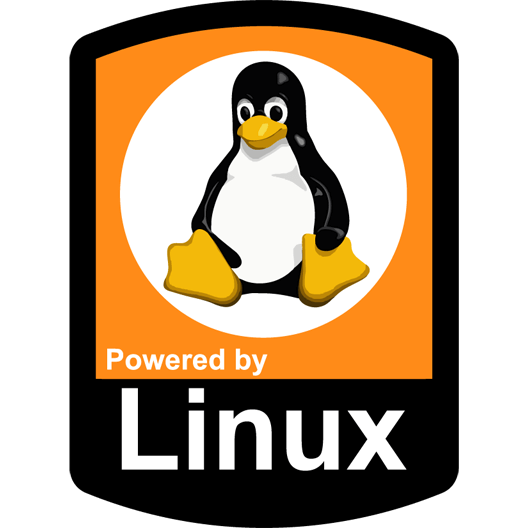The main cloud services don’t even work natively (GoogleDrive, OneDrive, iCloud) basically the only mainstream choice is Dropbox. I tried to use Google Drive in Mint, and it’s a pain to get it to work, and usually it stops working after computer restarts.
Someone has a recommendation about how to handle these services?
Koofr
Nextcloud works great! Includes integrations with GNOME and KDE including taskbar icons etc. and you can pay a service to host Nextcloud for you if you’d prefer that to selfhosting.
Syncthing has never failed me.
Most people I know who use Linux wouldn’t trust Cloud services cause that’s just storing your stuff on somebody else machine. You can self hosted service like Next cloud on a raspberry pi or just get comfortable with networking enough to setup VPN and ssh into your home computer from the net to get your stuff.
Well the thing is, I’m still not comfortable in opening up an attack surface like that. I would much rather pay for someone else to do that. Preferably someone who really knows what they are doing and keeps an eye on the constantly evolving security environment. There’s a bunch of other stuff happening in my life, so finding the time to play server admin isn’t that easy right now.
If you need the online storage (or whatever self hosted service) just for yourself (and maybe some few people), it’s very simple to set up a Wireguard instance. My server doesn’t even show open ports to the outside world, but with Wireguard I can access my git, wiki, etc in my home LAN.
I haven’t really tried any of the second tier Solutions like Tailscale. But when you have more users or a more complex environment, that could help.Still, sharing stuff with “outsiders” would still be tricky, I guess - at least I haven’t found a solution…
There are many professional Nextcloud holsters, for example: https://www.hetzner.com/storage/storage-share
Thanks for the link. Recently, I’ve been looking into nextcloud providers, but somehow I missed this company.
Uh what? Lots of Linux users also use cloud services.
Pretty easy to use something like Cryptomator with almost any service and maintain privacy.
Self hosting can be great; it can also be a pain.
While this is true, you can have a remote backup service that isn’t the type of cloud storage the OP seems to want (that is, which isn’t designed for editing individual files on the fly on the remote server, or synchronizing between devices). They’re similar, but not the same.
I’m mostly talking about the “somebody else’s computer” part in the comment I replied to. I don’t think it’s very feasible. I think self hosting stuff from home is awesome and think it’s a culture more folks should check out, but to really have a proper backup of files they need to be stored in multiple different physical locations and that’s not something that’s cost effective for most folks. What you’re talking about is still “someone else’s computer” so not different from the comment above.
@JackbyDev @besbin my personal solution for this is an encrypted 16tb external storage drive I keep in my car. A copy of my server drive is made once a week. not perfect solution but doesn’t require much effort on my part
I guess it depends where you live, but I’d be worried about heat/freezing.
@JackbyDev in a parking space on the other side of the road from my house, not far but deals with the whole house fire problem
I walk through the woods on one side of my house, there is a shovel behind some trees I’ve marked. Then I go back to my house, down the other side of my property until I get to the river. Then I dig in the river bank until I get to a plastic bag. Double wrapped of course.
Inside the plastic bag?.. a collection of 1gb USB thumb drives and a note pad.
In the note pad?.. an index cataloguing what is backed up on each thumb drive.
A hard drive in a bank vault is separated enough that nothing short of a nuke will destroy every copy of your data at the same time.
Multiple backup drives. Rotate every week or two. It’s not hard.
You can use rclone
I second that.
With the additional advantage that rclone has modules like crypt and join, which allows you to keep your data encrypted no matter which cloud you use, gaining more cloud space by joining clouds, etc.
I didn’t know this option. Will certainly give it a look.
Just make sure, that you have logs for it, and check before sync. because sometimes in bisync, you can lost your file… but I already manage it by excluding a lot of .swp, ~.lock., and other temp files… Mostly temp files is there cause of broken bisync, and when resync, the file that suppose to be synced, deleted…
I have a self-hosted Nextcloud and my Nextcloud account connected via GNOME as an Online Account. It integrates seamlessly with Calendar, gives me a webdav mount for my files etc. I don’t have any issues. I have not added any Google accounts, and definitely no Microsoft accounts. I don’t use public clouds for private stuff.
I have a self-hosted Nextcloud and my Nextcloud account connected via GNOME as an Online Account.
The self-hosted bit is the problem. I have yet to find a Nextcloud provider that offers the service truly ready to go. The ones I found try to make it somewhat easy by offering Install buttons in web interfaces but if you have absolutely no clue about such things, even that is a hurdle to overcome.
Here is the official list of nextcloud providers that do the setup and maintenance for you: https://github.com/nextcloud/providers#providers
Considering that the list includes providers I’ve had first hand experience with and those are not ready to use: No.
Because it’s a disproportionate amount of effort to natively support an extra OS (particularly one as fragmented as Linux), especially one with such a small userbase that largely isn’t interested in using proprietary cloud services in the first place because of data privacy and security concerns.
Obviously not all Linux users are super worried about that stuff (I mean, I use Linux and have a google pixel), but on average the Linux userbase is way way more aware of that stuff than most users who just want their photos backed up without having to worry about it.
They could easily provide a cli tool or a docker app (which would work on every OS).
I use Google cloud with nautilus, and before that I used google-drive-ocamlfuse on my Chromebook with custom firmware. All this just so I don’t have to use their stupid website.
If you want cloud storage I’d recommend Nextcloud as a service (I’m not affiliated with them, just a customer)
Works like a charm. You can even install plugins. Also, there are other companies that provide hosting so there is no vendor-lock-in.
Can’t recommend Nextcloud enough. I also recommend checking out self-hosting! It’s ridiculously easy to setup with the example docker-compose files they have in their git repo. If you have a NAS or a machine at home, you can basically create your own online storage that’s completely private.
I have a raspberry pi 2, would this handle Nextcloud? Any recommendations for a hard drive to use with it please?
Being 32 bit, it’s getting a bit old for using it with modern software. But maybe take a look at this and give it a try:
https://help.nextcloud.com/t/how-to-install-nextcloudpi/126308
NextcloudPi is a fairly low-maintenance version of NC, the only way I’d recommend installing it besides as a docker image. Straight installing NC is a recipe for disaster, it’s notoriously bad at updating that way.
Whatever you do, don’t use the builtin web updater inside NC to update nextcloud itself. Their app updater is fine, but the actual Nextcloud web updater is utter dogshit and will break things.
Thank you 😃
Mega (Mega Upload) ain’t bad, 30gb free. Worth a look!
I used them all, so I get plenty of cloud storage for free
rclone for cloud backup
What’s your use case for cloud storage?
If you only want to sync files between your devices, I would recommend taking a look at Syncthing. It syncs files without relying on a central server and is much faster, as it can sync within your local network and is therefore not restricted by the speed of your internet connection.
For sharing files with others, I use a self-hosted Nextcloud. I mounted my Syncthing folder as external storage.
If you use GNOME as your desktop, you can also log into some online services in system settings and then, for example, access Google drive via the file manager to upload or download files.
I believe there are also third-party tools for some cloud storage providers, but I have no experience with them and therefore can’t make any recommendations.
Some cloud storage providers probably don’t see Linux as a large enough market to justify the development of official clients. Some, e. g. Microsoft, could have an interest against one to not make alternatives to their own products, e. g. Windows, more attractive than they already are.
@fossisfun @desconectado Still, if I was Microsoft I think I’ll develop an official OneDrive client for Linux. And I hope in the future they’ll realize it’s not a bad opportunity for them and for fidelizing users.
Syncthing is a very good piece of software, even when working cross-platform. Nextcloud, however, is the biggest and most cumbersome pile of garbage open-source produced in the last decate.
Currently I’m running Syncthing on my NAS and all my devices sync to it (no cross-device sync to avoid issues). Then I’ve an SMB share to allow access to the files on iOS devices and FileBrowser for a cloud-like web browser access experience. Works flawlessly uses very little RAM and its solid, private, secure and manageable open-source - not something like Nextcloud that calls home, breaks everything on upgrades, wastes ram and runs slowly to only deliver an inferior experience in all possible ways.
Some of my experiences with NC are described in detail at https://lemmy.world/comment/1571886 and https://lemmy.world/comment/346174
It works fine for what I need it to do: access and share my Syncthing folders, CalDAV, CardDAV, RSS
I try to minimise the amount of stuff I selfhost, as I don’t enjoy being responsible for the uptime and security of a whole bunch of personal web services. That’s why I like the flexibility of ownCloud and now Nextcloud, instead of using a different, standalone project for each function.
Nextcloud is everything other than minimization and stability. I bet if you take a quick look at their repositories you’ll find security-wise questionable stuff very fast and also tons of different pieces not a single thing.
Hi, I quote this, Syncthing+Nextcloud if you want to share directories, files, calendar, contatcs etc with someone, for example your family.
I have a Backblaze B2 account I use for other things, I recently created a new bucket on it and attached it as a drive using s3fs. Works fine as far as I can tell (I’ve not used it much - prefer to keep things locally and just back them up off-site, which is actually what I have my B2 account for), so you certainly can do this with an S3 (AWS) compatible service.
I use Backblaze B2 buckets too, just use a cron job to sync stuff once a day (using it for backups). It’s not expensive and it just seems to keep on working. I also like their disc reliability reports they send out.
Is it encrypted prior to sending?
That’s what I use for backups of all my stuff. Restic runs and manages the backup process.
That’s what I do, too. Only thing is, I’m trying to figure out how to speed s3fs up because it’s pretty pokey. How well does it run for you?
I keep seeing this question pop up. “Why doesn’t [closed/proprietary technology] work well in Linux?”
This question should be asked at whoever makes said technology. You are their client, why don’t they support your operating system?
That responsibility should not fall on the shoulders of the thankless volunteers that do their best to create an awesome OS.
Alternatively you can buy one of the commercial distributions and become a client. Then you can ask your supplier why don’t they support that technology.
I agree! But it’s surprising that even Google doesn’t have a native app for Drive. There’s one for android, but not for Linux? I’m guessing it all boils down to number of users, but still…
For personal use, i use FreeFileSync.
Really awesome, works like a charm.Not exactly
























